Intro
Learn about MMR vaccine for adults, including its benefits, side effects, and importance for measles, mumps, and rubella protection, especially for travelers and healthcare workers.
The MMR vaccine, which protects against measles, mumps, and rubella, is a crucial component of childhood immunization schedules worldwide. However, its importance extends beyond childhood, as adults can also benefit from vaccination, especially if they were not vaccinated or did not develop immunity as children. In recent years, outbreaks of measles and mumps have highlighted the need for adults to ensure they are adequately protected against these diseases.
Measles, mumps, and rubella are highly contagious viral infections that can lead to serious complications, particularly in adults and individuals with weakened immune systems. Measles, for instance, can cause pneumonia, encephalitis (inflammation of the brain), and even death. Mumps can lead to meningitis (inflammation of the membranes surrounding the brain and spinal cord), orchitis (inflammation of the testicles), and permanent deafness. Rubella, while generally milder, can cause severe birth defects if a pregnant woman contracts the virus.
The MMR vaccine has been widely used and proven to be safe and effective in preventing these diseases. It is a live, attenuated vaccine, meaning it contains weakened forms of the viruses, which prompts the body's immune system to produce antibodies that fight the viruses without causing the full-blown disease. For adults, getting vaccinated can prevent the spread of these diseases in the community, protect vulnerable individuals who cannot receive vaccines due to medical reasons, and safeguard against the potential for severe complications if infected.
Benefits of MMR Vaccine for Adults
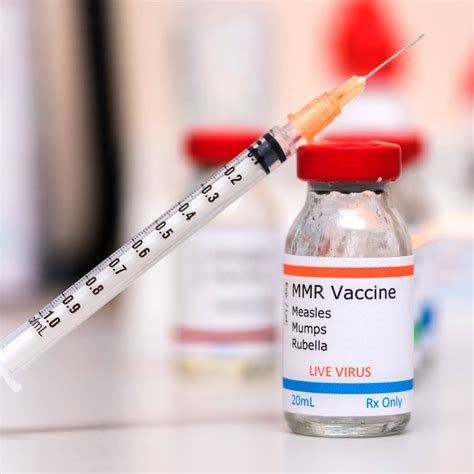
The benefits of the MMR vaccine for adults are multifaceted. Firstly, it provides personal protection against measles, mumps, and rubella, reducing the risk of infection and its associated complications. This is particularly important for adults who were born before widespread vaccination was implemented or who have not previously been vaccinated. Secondly, vaccinated adults contribute to herd immunity, which is crucial for protecting individuals who cannot receive vaccines due to certain medical conditions, such as immunodeficiency diseases or cancer treatment. By reducing the number of susceptible individuals in a population, the spread of these diseases is significantly curtailed, safeguarding those who are most vulnerable.
Who Should Get the MMR Vaccine?
Certain groups of adults are recommended to receive the MMR vaccine, including: - Individuals born in 1957 or later who have not been vaccinated or have not had the diseases. - Healthcare workers, teachers, and others who work in environments where they are at higher risk of exposure. - International travelers, especially to areas where these diseases are common. - Women of childbearing age who are not already immune to rubella.How the MMR Vaccine Works
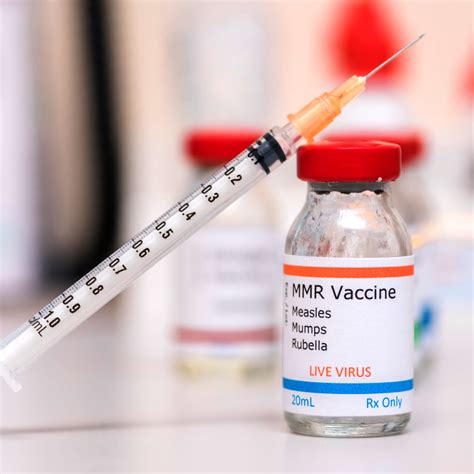
The MMR vaccine works by introducing a small, harmless piece of the virus or a weakened form of the virus to the body. The immune system then recognizes these foreign substances as threats and mounts a defense against them, producing antibodies and immune cells that can recognize and attack the viruses if they enter the body in the future. This process is known as immunization and provides long-term protection against measles, mumps, and rubella.
Steps to Get Vaccinated
To get vaccinated, adults should follow these steps: 1. **Consult a Healthcare Provider**: Discuss the need for the MMR vaccine with a healthcare provider, especially if there are concerns about previous vaccinations or immunity. 2. **Check Vaccination Records**: Review childhood vaccination records to determine if the MMR vaccine was administered and if booster shots are needed. 3. **Schedule the Vaccine**: If recommended, schedule the vaccination. The MMR vaccine is typically given in two doses, spaced at least 28 days apart, for those who have not previously been vaccinated. 4. **Follow-Up**: After receiving the vaccine, follow up with the healthcare provider to ensure the development of immunity and to address any side effects or concerns.Side Effects and Safety
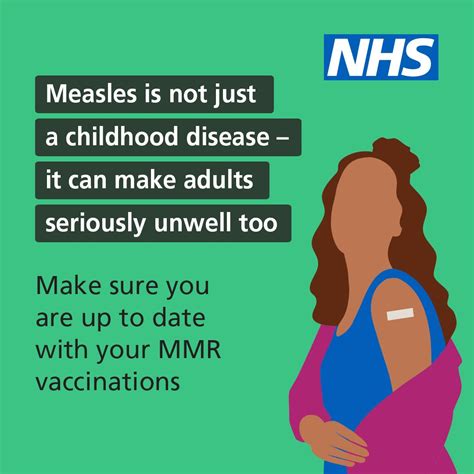
Like all vaccines, the MMR vaccine can cause side effects, although they are generally mild and temporary. Common side effects include:
- Pain, redness, or swelling at the injection site
- Fever
- Mild rash
- Itching
- Swollen glands in the cheeks or neck
Serious side effects are rare but can include allergic reactions, which are usually apparent within a few minutes to a few hours after the vaccination. It is crucial to discuss any concerns or history of allergies with a healthcare provider before receiving the vaccine.
Addressing Concerns and Misconceptions
There have been misconceptions and concerns about the safety of vaccines, including the MMR vaccine, largely stemming from a now-retracted study suggesting a link between the MMR vaccine and autism. Extensive scientific research has since proven that there is no such link, and vaccines are rigorously tested for safety and efficacy before they are approved for use.Practical Examples and Statistical Data
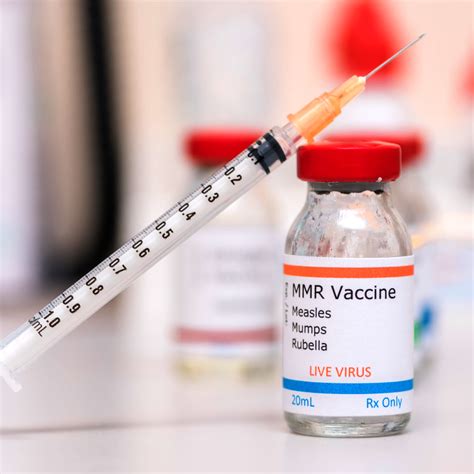
The effectiveness of the MMR vaccine is well-documented. For example, according to the Centers for Disease Control and Prevention (CDC), two doses of the MMR vaccine are about 97% effective against measles and 88% effective against mumps. The vaccine's impact on public health is also significant; widespread vaccination has led to a substantial decrease in the incidence of these diseases. In the United States, for instance, the number of measles cases decreased by more than 99% from the pre-vaccine era to recent years.
Benefits for the Community
The benefits of the MMR vaccine extend beyond individual protection to community-wide benefits, including: - **Herd Immunity**: Protects those who are too young to be vaccinated or who have weakened immune systems. - **Disease Prevention**: Reduces the spread of measles, mumps, and rubella. - **Public Health**: Contributes to the overall health and well-being of the community by preventing outbreaks and reducing the burden on healthcare systems.FAQs
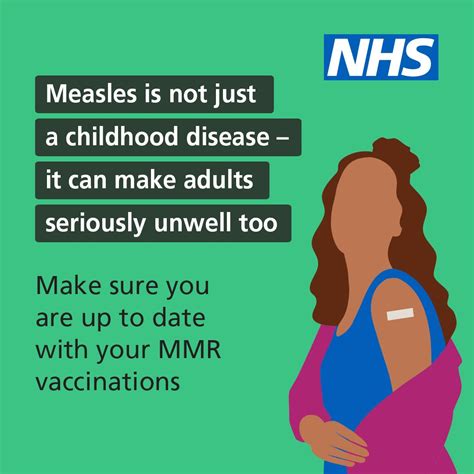
Is the MMR vaccine safe for adults?
+The MMR vaccine is considered safe for adults. While it can cause side effects, these are generally mild and temporary. Serious side effects are rare.
Do I need the MMR vaccine if I've already had measles, mumps, or rubella?
+If you've had all three diseases, you may not need the vaccine. However, if you're unsure or have only had one or two of the diseases, consult with a healthcare provider to determine the best course of action.
Can I get the MMR vaccine if I'm pregnant or breastfeeding?
+Pregnant women should avoid the MMR vaccine due to the theoretical risk of transmission of the live, attenuated viruses to the fetus. Breastfeeding women, however, can safely receive the vaccine.
In conclusion, the MMR vaccine is a vital tool for protecting adults against measles, mumps, and rubella. By understanding its benefits, working mechanisms, and any concerns or misconceptions, adults can make informed decisions about their health and contribute to community-wide immunity. We invite readers to share their thoughts on the importance of vaccination and to discuss any questions or concerns they may have regarding the MMR vaccine. Your engagement and commitment to public health are crucial in our collective effort to prevent the spread of infectious diseases.
